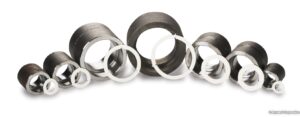Industrial Cable Connectors: Durable, High-Performance Connectivity for Demanding Applications
In modern industrial operations, uninterrupted connectivity is vital for productivity and safety. Industrial cable connectors play a key role in ensuring reliable transmission of power, signals, and data across complex machinery, control panels, and production systems. Designed to endure harsh conditions such as vibration, moisture, temperature fluctuations, and chemical exposure, these connectors are engineered for performance, durability, and safety.
What is an Industrial Cable Connector?
An industrial cable connector is a device used to join electrical cables to equipment or other cables, allowing the transmission of power or data within industrial environments. These connectors are built to meet strict standards for electrical performance, environmental sealing, and mechanical robustness.
They are widely used in sectors such as:
- Manufacturing and automation
- Oil and gas
- Renewable energy
- Transportation and logistics
- Construction equipment
- Robotics and control systems
Key Features of Industrial Cable Connectors
- Rugged Design:
Built with tough materials like stainless steel, aluminum, and thermoplastics to withstand extreme environments. - Environmental Protection:
IP-rated connectors offer protection against dust, water, and chemicals, ideal for outdoor or washdown conditions. - Vibration and Shock Resistance:
Secure locking mechanisms and vibration-resistant designs ensure stable connections, even in heavy-duty machinery. - Wide Compatibility:
Available in various pin configurations, sizes, and standards to support data, signal, and power applications. - Easy Installation and Maintenance:
Many connectors are designed for quick-disconnect and tool-less installation, minimizing downtime.
Common Types of Industrial Cable Connectors
- Circular Connectors:
Popular in automation and robotics, these connectors provide compact, sealed solutions for both power and signal transmission. - Rectangular Connectors:
Known for high pin density and modularity, suitable for control panels and equipment interfaces. - RF and Coaxial Connectors:
Used in communication and data transmission, especially in industrial IoT and sensor networks. - Power Connectors:
Designed to carry high voltage or current, typically used in motors, drives, and power supplies. - Ethernet and Fieldbus Connectors:
Vital for industrial networks such as PROFIBUS, Ethernet/IP, and Modbus, enabling smart factory integration.
How to Choose the Right Industrial Cable Connector
To select the right connector for your application, consider:
- Electrical Requirements: Voltage, current rating, and signal type
- Environmental Conditions: Exposure to moisture, chemicals, or temperature extremes
- Mechanical Factors: Vibration levels, mounting style, and cable strain relief needs
- Compliance and Standards: Ensure compatibility with industry-specific regulations like UL, CE, or IEC standards
- Connector Type and Size: Choose based on installation space and number of contacts required
Conclusion
Cable connectors for industrial use are essential components that ensure safe, reliable, and efficient transmission of power and data. Their robust construction and specialized designs make them suitable for the most demanding environments, from manufacturing plants to offshore platforms. By choosing the right industrial connector, businesses can enhance equipment performance, reduce downtime, and support the seamless operation of automated systems.





















